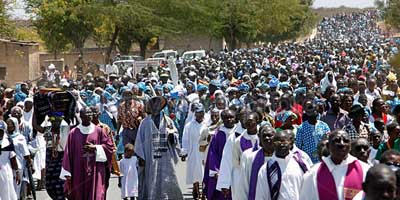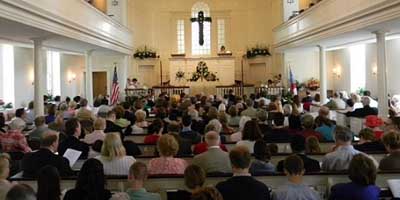Belief Systems
What are beliefs? What do we mean by them? In fact there are many definitions, but the one we use at Awareness Now! is:
- Belief is the state of mind in which a person thinks something to be the case, with or without there being empirical evidence to prove that something is the case with factual certainty.
Belief systems are organized sets of beliefs. They exist in many forms. The most obvious ones being:
- Religious belief systems
- Political belief systems
- Belief systems based on nations and nationality.
- Belief systems based on race
- Belief systems based on scientific theories/hypotheses
Some relevant observations:
- People have created belief systems for thousands of years, all over the world.
- It is an intrinsic human quality, not dependent on geographical or cultural factors.
- There are currently over 4000 religions in the world and hundreds of political movements. There are over 200 separate nations.
- When large numbers of people subcribe to a belief system, people tend to assume that this belief system therefore contains more “truth”.
- Every person also has his or her own “personal” beliefs
- Belief systems are not necessarily based on “facts”
- People are not always aware of their beliefs.
- Belief systems contain both positive and negative assumptions
- Belief systems often have a tendency to “dig in”, rather than to evolve
- People usually like it when their belief systems are confirmed, and dislike it when they are questioned.
- Belief systems create division and conflict, because they often introduce various forms of incompatible “truths”
- Beliefs exist nowhere but in our minds!
Mankind has been creating belief-systems for ages. it is a human response to our existence in the world. We are driven by curiosity but also by a need to find “purpose” and “certainty”. So we want or need to believe in something and be told what’s right or wrong. Belief-systems fullfill that need.
Religious belief systems
Religious belief systems provide “Truths” in the form of stories, commandments, dogmas and so on. Once these “Truths” have been written down or consensus has been reached, these “Truths” are generally no longer questioned and typically don’t evolve anymore. Topics which religious belief systems deal with:
- What is the purpose of life?
- What is good, what is bad?
- How should I behave?
- Where does the world come from?
- Why do I exist?
Other belief systems
It is outside the scope of this article to elaborate on all the kinds of beliefs in political, national and racial belief systems. It is perhaps interesting to mention that scientific or philosophical theories can also lead to belief systems like materialism, reductionism, determinism and others. There is one major difference though: in science there is a constant development and evolution of insight. A good scientist will always try to disprove his or her own hypothesis. (you don’t see people adhering to political or religious belief systems, doing that very often)
Personal beliefs and convictions
Beliefs also exist on a personal scale. We carry assumptions along with us all the time, as personal beliefs. Examples:
- I am a social and likeable person
- I don’t like that person, he/she is nasty, mean, etc…
- People who think “XYZ…” are really stupid
- If only I would have more money, I would be happier
- Etc.
Just like large scale belief-systems, personal beliefs can easily stick around for a long time. In fact belief systems often maintain a situation. For instance, we will deal with a person we find “nasty” in a way which is biased. We are no longer open minded. This other person will notice it and probably respond in a negative way, thereby confirming and maintaining this “reality”.
A positive belief like “I am a nice and generous person” will likewise certainly help to create more positive experiences. The problem arises though when someone questions this very belief. When I am really identified with it, I may become angry and reactive. We pose that identification is always where the problem arises.
Large scale conflict
The information describing belief systems can be written down in words and be communicated to large groups of people, over time. Just like the belief system of a “separate self” can cause conflict between individuals, the belief system of “countries” or “nationalities” can cause conflicts between countries. The belief system of a religion with a set of rules and dogmas can conflict with another belief system with different rules and dogmas. The Middle East is one of the examples of how colliding belief-systems have caused incredible misery for ages now.
Belief systems and fear
Besides positive encouragment, manipulating the emotion of fear is one of the most effective ways to make sure that people stay within a belief system. Humans are very social beings. The need to belong, be safe and be loved are core. The risk with such deep and fundamental needs however, is that they turn into dependency and exploitation. If a belief system has very strict dogmas, rules and norms, it would be considered “wrong” to deviate from them. Questioning these dogmas, rules and norms, or worse “leaving” the belief system, can have very negative consequences:
- No longer being a respected or accepted member
- Loss of reputation
- Losing the sense of belonging, having a home
- Being expelled and rejected
- In somes cases: “death”
Religion – One Truth?
A fairly large percentage of religious people actually believe that there is “one Truth” and that their belief system is THE only way to this truth. This leads to the obvious conclusion that other “truths” must be wrong. It also means that other people who don’t believe that version of “truth” soon become a problem. They must be convinced, converted, or worse. When religious people claim “Only through the holy person ABC or holy book XYZ will Truth be found” they set themselves up for conflict.
We suggest that the human need for the reduction of uncertainty, is what creates these belief-systems. Last but not least, even when certain belief systems state very useful things, like “have compassion for others…”, the act of believing this or knowing this, apparently has little effect. When their belief system is at stake, history teaches us that people will go into war for it.
Core assumptions – examples
We suggest that in order to understand the psychology of belief systems and our identification with them, we have to look deeper at the core of our general world view. For example, most people believe these are “core” facts:
- every person is a separate “self” with certain borders and properties
- each country is a separate entity with certain borders and properties
- each “self” has individual interests which collide with interests of other selves
- each “nation” has individual interests which collide with interests of other nations
- therefore a world without conflict, is impossible
We pose that in reality the separate “self” does not exist, nor do separate nations and borders, we imagine them! Knowing they are man-created however, still does not change our psycho-social reality. This is why we are in need of more awareness, assuming we don’t want to repeat the violent aspects of human history over and over.
Belief systems and Duality
Any belief system introduces duality and division. If you think you are a Christian, then you will disagree with a Buddhist. The Moslim will disagree with the Hindu. The left-wing political person, will disagree with the right-wing person. People from some nations, hate people from another nation. And so on. When people say that some things are TRUE, they introduce the concept of NON-Truth. “Duality” is typically used to describe this phenomenon.
Living with uncertainty
If you want to understand why there is suffering and misery in our world, we suggest you explore whether you can live without being identified with beliefs. We pose that this is possible and will be a step in the evolution of human psychology, which at some point in time we eventually will have to take.
Identification with a belief
The Awareness-Now website does not deal with the content of belief systems. We pose that the truly problematic principle is the identification with beliefs. How does one know someone is identified with a belief? This is self evident. At the moment a person becomes reactive, angry or violent, just because their beliefs are challenged, we know this identification is there.
~~~
@YOU: do you want to respond to this article or the other content? Please go to the BLOG section and let us know about your experiences with belief systems.







